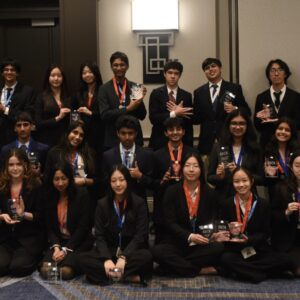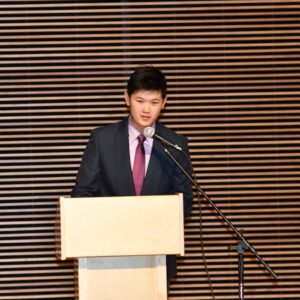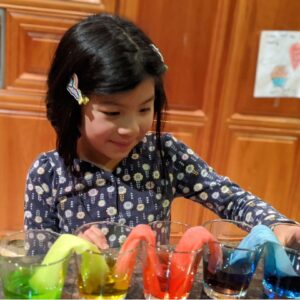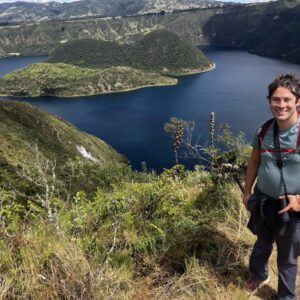Seventh graders have been learning about the basics of electricity and kinetics in science class. Raji Swaminathan, Gr. 7 science teacher, says the section on electricity is particularly appealing to students because “every day [they] have a hands-on activity that demonstrates the concept learned.” Recently the students studied Ohm’s Law, which relates to resistance and current. In the experiment, students examined current readings while changing resistance through an Ammeter, which measures current, and by watching a light bulb connected to the circuit change in brightness.
Science classes also use fun and exciting ways to learn physics. After covering topics such as potential energy, kinetic energy and the Law of Conservation of Energy, students were tasked with building a roller coaster to demonstrate their knowledge. These coasters were constructed using PVC pipes, foam insulation tracks and tape with a marble acting as the coaster. Each coaster had to meet a specific list of requirements regarding size and features. These were a initial hill tall enough to provide the coaster with enough potential energy to complete the course, a loop-the-loop and an exit hill.
In the experiment, not only did the marble have to make it through the entire track without stopping, it had to do so without flying off at any point. After this was accomplished the real work began. Students calculated the potential energy values at the top of the first hill, top of the loop and top of the exit hill. Knowing that total mechanical energy (sum of potential and kinetic energies) stays a constant, students calculated the kinetic energies at the three above-mentioned points and hence figured out the velocity of the coaster at these three points. Through hands-on experiments like these, the lessons students learn are remembered for a lifetime!










